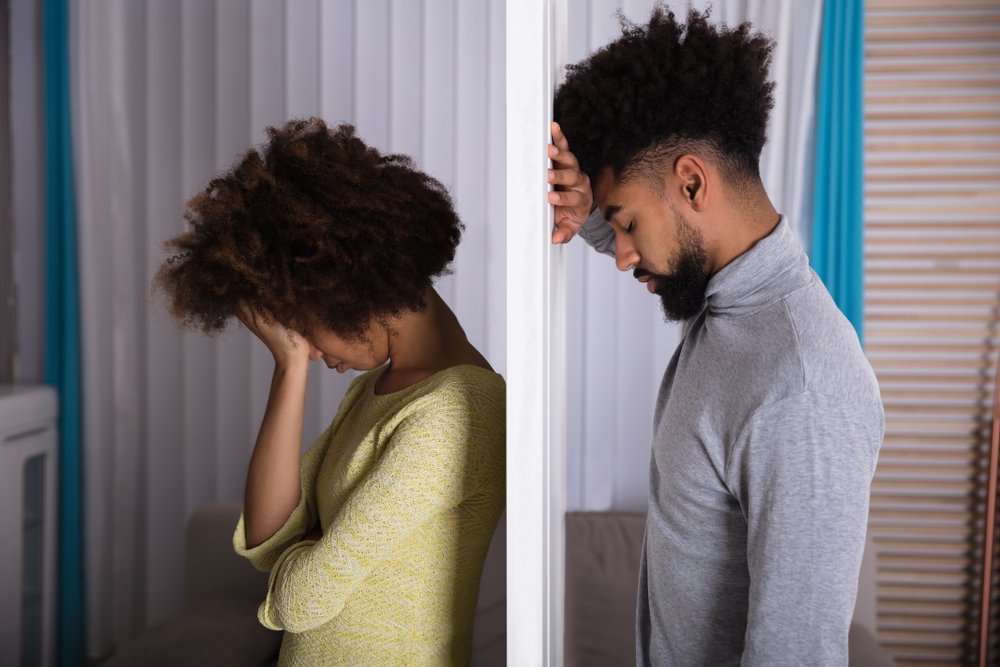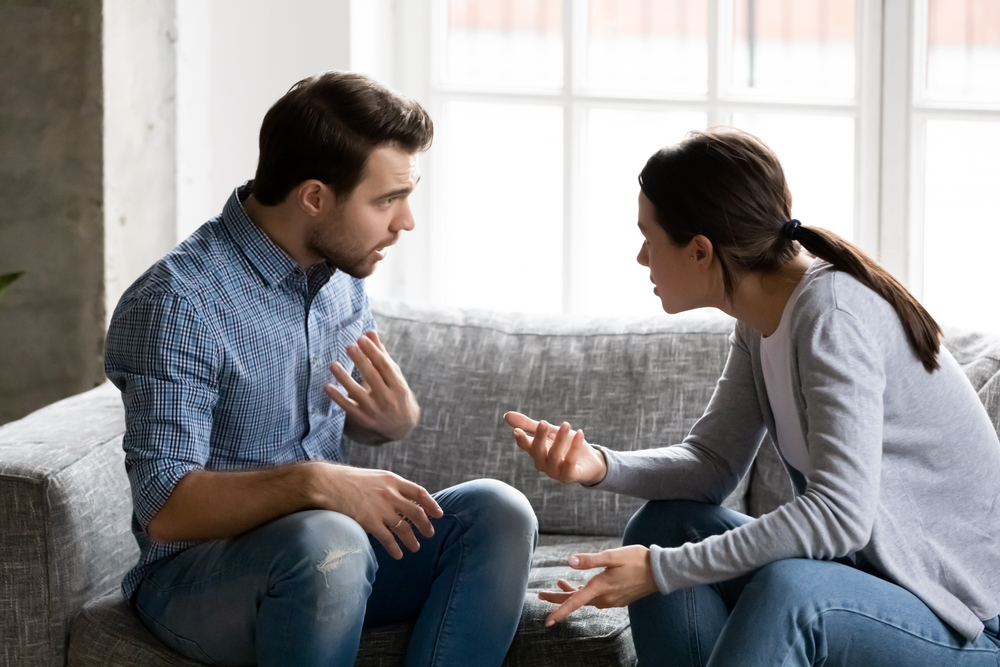It’s easy to write someone off as mean, bitter, or toxic without asking what’s really fueling their behavior. Beneath many passive-aggressive remarks, defensive shutdowns, and angry outbursts is something deeper and more vulnerable: pain that’s been ignored, misunderstood, or never healed. Emotional wounds don’t just fade quietly—they shape how people see love, trust, and even basic human connection. Without realizing it, those carrying the deepest wounds often become the most reactive, the most guarded, and the most capable of hurting others.
This isn’t about excusing cruelty or justifying harm. It’s about understanding how unhealed pain becomes a cycle—how someone who was once hurt learns to hurt others as a form of self-protection. Trauma rewires how people experience safety and vulnerability, often causing them to react in ways they don’t fully understand. Until those wounds are named, faced, and healed, the pain spills into relationships in ways that are subtle, unconscious, and damaging.
1. They Project Their Pain Onto People They Consider Weak

People who’ve been wounded by a parent, partner, or bully often project that pain onto those they view as safe or vulnerable. Instead of dealing with their own emotional wounds, they offload their anger, resentment, and hurt onto others who can’t or won’t fight back. This projection isn’t conscious—it’s a defense mechanism designed to protect them from facing their own inner chaos. As A Place of Hope explains, projection helps people avoid feelings they believe would destroy them if fully acknowledged.
Unfortunately, this poisons trust and intimacy. The person on the receiving end isn’t judged fairly—they’re treated like a stand-in for whoever caused the original harm. This pattern damages relationships and isolates the person further, reinforcing their belief that people can’t be trusted. Healing begins when they recognize this behavior as self-sabotage, not self-protection.
2. They Mistake Control For Connection

People who have been betrayed or abandoned often confuse control with emotional safety. They try to manage conversations, dictate outcomes, or micromanage others—not because they crave power, but because they fear unpredictability. Control feels like protection against pain, a way to avoid the shock of future betrayal. Underneath the rigid behavior is often deep fear, not arrogance.
Ironically, the more they try to control, the more they push people away. This distance reinforces their belief that others aren’t safe or trustworthy. What they seek is reassurance and closeness, but their behavior drives disconnection. True healing comes when they realize connection can’t be forced—it has to be chosen, freely.
3. They React To The Present Like It’s The Past

Emotional flashbacks aren’t always loud—they often show up in subtle ways during everyday conversations. Someone makes a harmless joke, a text goes unanswered, or a tone shifts, and suddenly the hurt person is reacting as if old wounds have been reopened. Their body and mind pull them back into the past, reliving a pain that’s not even part of the current moment. To the other person, the reaction seems disproportionate, confusing, or unfair.
The British Journal of Psychiatry Advances explains how trauma causes the brain to store sensory details in a heightened state, making the past feel present. These reactions aren’t about the current relationship—they’re about unresolved fear. Without healing, the hurt person repeats cycles of defense and reactivity. They aren’t protecting themselves from you—they’re protecting themselves from ghosts.
4. They Push People Away To Avoid Being Abandoned

People with abandonment wounds often develop habits that keep others at arm’s length. They might pick fights, shut down emotionally, or create distance, all as a way to control how and when someone leaves. By pushing people away first, they feel they can avoid the pain of being blindsided later. Charlie Health notes this as a common defense among those who fear rejection—it feels safer to create the ending themselves.
Paradoxically, they don’t want to be alone. What they crave is connection, but fear convinces them that closeness always ends in loss. Their defensive walls become cages, trapping them in loneliness they don’t know how to escape. Healing requires recognizing that distance doesn’t protect—it only prolongs the ache of isolation.
5. They Use Humor To Mask Bitterness

Hurt people often use sarcasm, dark humor, or biting jokes as a shield for their pain. It’s safer to laugh things off than admit vulnerability or sadness. Humor becomes a way to release anger, disappointment, and insecurity without appearing weak. As The Atlantic and trauma research note, humor—especially dark or sarcastic humor—is often a coping strategy for emotional survival.
But this humor lands differently for others. Sarcasm can sting, and jokes can mask deep bitterness that eventually leaks into relationships. The person behind the humor isn’t heartless—they’re hiding. Healing comes when they learn to express pain directly, not through veiled punches disguised as wit.
6. They Confuse Being Needed With Being Loved

For people who were only valued for what they could give—whether it was money, care, or stability—love starts to feel like a transaction. They equate being needed with being worthy, believing usefulness is their only currency. As a result, they overextend, take on too much, and often feel resentful when others don’t return the favor. They don’t see love as unconditional—they see it as earned.
This mindset creates exhaustion and quiet bitterness. They feel unseen beyond their ability to serve others. The resentment builds until it explodes, often confusing everyone around them. Healing means learning they are worthy of love simply for existing, not for how much they provide.
7. They Shut Down Instead Of Speaking Up

People raised in emotionally neglectful environments often learn that expressing needs is dangerous or pointless. When conflict arises, they don’t fight—they disappear emotionally. Silence feels safer than vulnerability, even if it creates confusion or hurt for others. Greater Good Magazine highlights how early neglect leads to emotional shutdown as a form of survival.
To the people around them, this silence feels like punishment or withdrawal. It builds walls in relationships where communication is desperately needed. But to the hurt person, speaking up still feels too risky. Healing means learning that voicing pain isn’t a threat—it’s a pathway to connection.
8. They Are Suspicious About Kindness

When kindness has been used as a weapon or a manipulation tool, genuine warmth starts to feel suspicious. Compliments make them anxious, not happy. Offers of help trigger worry about hidden agendas. Instead of feeling comforted, they brace for betrayal.
This hyper-vigilance erodes trust and connection. They want love, but they can’t fully believe it comes without strings. Scanning for danger becomes second nature, even when none exists. Healing requires relearning that kindness doesn’t always come with a price.
9. They Mistake Emotional Intensity For Intimacy

For people raised in chaotic homes, calm can feel threatening. They mistake arguments, jealousy, and emotional rollercoasters for passion and connection. Stability feels foreign—too quiet, too flat, too vulnerable. They chase highs and lows because that’s what love looked like to them growing up.
This is trauma chemistry playing out in adulthood. They crave the fireworks, not realizing that chaos isn’t proof of love—it’s proof of unhealed wounds. They confuse survival patterns for romance. Healing begins when they learn that healthy love feels steady, not dramatic.
10. They Use Success As Emotional Camouflage

Some people throw themselves into achievements not because they’re ambitious, but because they’re hurting. Success becomes proof they matter, a distraction from emptiness or rejection. If they stay busy enough, if they keep winning, they believe they can outrun their pain. Titles and trophies feel safer than emotions.
But loneliness creeps in eventually. Accolades don’t offer comfort or genuine connection. Hustle culture rewards the mask but neglects the heart beneath it. Healing means learning that your worth isn’t tied to how productive you are.
11. They Consider Apologizing A Weakness

Apologizing feels impossible to people conditioned to believe mistakes lead to punishment. Saying “I was wrong” feels like surrendering power or inviting humiliation. Instead, they deflect, blame, or grow defensive to protect their fragile sense of self. Vulnerability feels unsafe, not freeing.
It’s not about ego—it’s about survival instincts. They fear losing love, respect, or safety if they admit fault. This fear keeps them stuck in cycles of defensiveness and avoidance. Healing means understanding that accountability builds trust, not breaks it.
12. They Feel Safer In Loneliness Than Love

For some, solitude feels safer than the risk of heartbreak. Love requires openness, and openness once led to pain they’re unwilling to revisit. So they convince themselves they prefer isolation. They become masters of self-sufficiency, using independence as armor.
But silence isn’t the same as peace. Loneliness weighs heavy even when it feels chosen. This protective shell eventually becomes a prison. Healing means recognizing that connection is worth the risk of vulnerability.
13. They Don’t Even Realize They’re Doing It

Most hurt people aren’t malicious—they’re just operating on autopilot. These behaviors come from unconscious scripts written during survival, not conscious cruelty. To them, these reactions feel normal, even necessary. They often don’t see the patterns until they’re pointed out.
But awareness is the beginning of change. Recognizing the cycle breaks its hold. Healing happens moment by moment, choice by choice. And it starts by refusing to pass that pain forward any longer.
Natasha is a seasoned lifestyle journalist and editor based in New York City. Originally from Sydney, during a stellar two-decade career, she has reported on the latest lifestyle news and trends for major media brands including Elle and Grazia.


